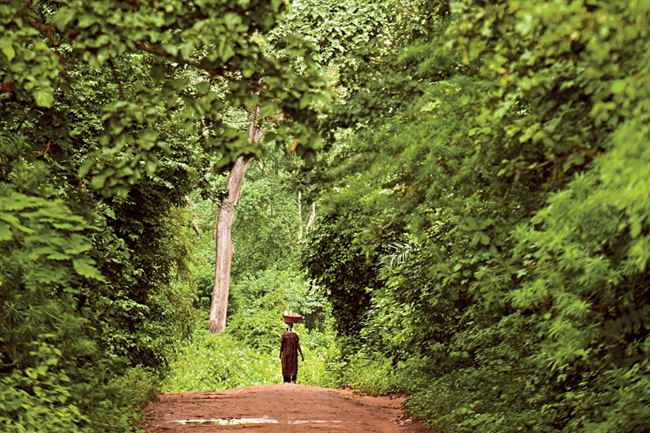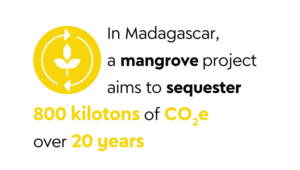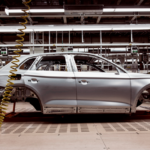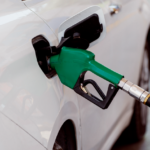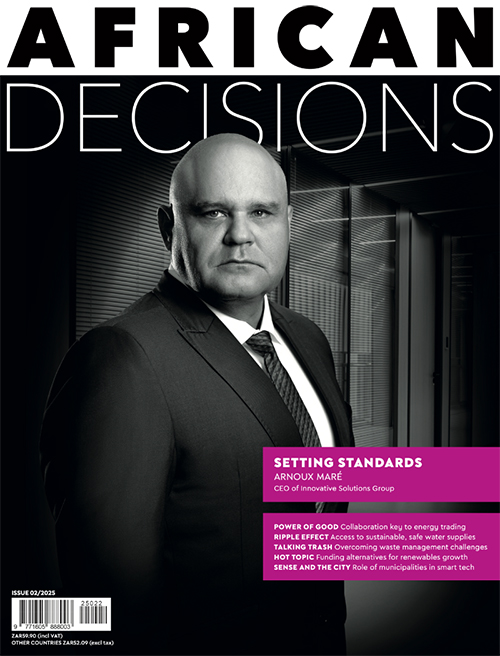An invitation appears on the Ghana Investment Promotion Centre’s website: ‘Come, invest in Ghana’ – and it’s not the only invite the nation is extending. Come, says the country, to energy companies; to rail, road and telecoms; agro-processing; mining and capital equipment businesses; tourism; anything you can think of.
Ghana had a 51% share in Africa’s FDI from 2007 to 2013 (the fastest-growing on the continent), which is proof that it is one of the most attractive destinations in the region. It ranks sixth on FDI Intelligence’s African Countries of the Future 2013/14 list and is placed fourth in the economic potential category. It’s also set to grow by 8% this year, and in the first half of 2013 ranked as one of the top three performing stock markets in the world.
Like most African nations, Ghana still struggles with infrastructure issues. However, with a hefty reform programme in place – albeit one that some think is too ambitious – it was recognised by the World Bank’s Doing Business 2014 report as the ‘Best Place for Doing Business’ in the Economic Community Of West African States (ECOWAS) region. This is quite an achievement given that its neighbour Nigeria, with a population of over 170 million, has more than six times as many people.
With a huge number of people comes poverty, and this is where Ghana has been incredibly successful in meeting its Millennium Development Goals to halve poverty by 2015. The country’s poverty level is 24% this year, down from 51% more than 10 years ago.
When poverty becomes manageable, a healthy consumer base starts to emerge and with that the rise of urban clusters, one of which is the greater Accra area, the country’s capital.
This area will be further strengthened by the emerging development, the Greater Ibadan-Lagos-Accra corridor, a 600 km long route that will also snake through Nigeria, Benin and Togo. With the potential to reach at least 25 million of the 300 million ECOWAS resident consumers, it will ultimately manifest as a real engine of economic development in the region, given it will also facilitate far greater integration of cross-border markets and act as a gateway into West Africa.
Ghana has always been considered a gateway, although not for the right reasons. When the Portuguese arrived on its shores in the 1400s, gold littered its beaches, giving birth to the aptly named Gold Coast. The greed that overcame the foreigners extended to an unpalatable slave trade, essentially created to subdue the African tribal control of the mineral deposits.
A fort, Elmina Castle, was constructed to protect Portuguese interests and was the first of many built. The Dutch, Danes and British followed, each erecting forts until the Gold Coast became the highest concentration of military architecture outside of Europe. The British gained maximum control and ruled until independence in 1957. By then slavery had been abolished and trade was focused not only on gold, but also cocoa, which remains a major contributor to the economy and its chief agricultural export.
Ghana is the second-largest cocoa exporter in the world, after Côte d’Ivoire, with importers predominantly from the US, EU, Asia, Brazil and South Africa. Ghanaian cocoa beans are of such high quality that the government established the Ghana Cocoa Board to protect, monitor and regulate cocoa operations against a potential influx of lower-quality beans being smuggled into the country – although there is no official record of this.
Generating 30% in export revenue, the board determines the price of cocoa beans locally and controls export, marketing, agricultural research, hybridisation of seeds, seed sales and services to farmers, and quality control.
Rice is fast becoming a very important product to the nation. Given that it currently imports it at an annual cost of US$600 million, Ghana is well aware and keen to use its arable land more productively to achieve the goal of becoming the main provider of rice to West African countries. With more than half its population engaged in formal and informal farming, other agricultural activities are focused on corn, yams, cassava and root crops.
Agriculture is, however, not the most important economic activity. First is the services sector, which contributes half of GDP from hotels and restaurants, health, financial and insurance institutions, information and communication. Yet of all the country’s industries, the crude oil subsector recorded the highest growth in 2013.
Ghanaian cocoa beans are of such high quality that the government established the Ghana Cocoa Board to protect, monitor and regulate operations
For more than 100 years it has been known that Ghana had petroleum resources. How much, though, became contentious in the 1960s. The rush of foreign interests moved the focus from onshore to offshore Ghana. Finally, in 1983, the country introduced its first petroleum legislation, the Ghana National Petroleum Corporation Law, to provide statutory and legal frameworks so that exploration and production would help economic development.
Tullow Oil, the company that drills more wells in Africa than any other, made the largest Ghanaian oil discovery in 2007. Called the Jubilee oil field, it can contain up to 3 billion barrels of sweet crude oil, with a combined projection of 5 billion barrels across all the oil fields.
In fact, by the end of 2013, the country was producing 140 million cubic feet to 200 million cubic feet of natural gas daily. Projections are that Ghana actually could have up to 5 billion barrels to 7 billion barrels of petroleum in reserves, making it the sixth-largest in Africa, and 25th in the world, of proven reserves.
In a gas and petroleum-hungry world, the queue to build Ghana’s offshore reserves is endless. South African company New Alpha Refinery is constructing the largest refinery in West Africa at a cost of US$6 billion, at Ghana’s western port of Takoradi.
The International Finance Corporation has invested US$125 million to help develop offshore oil and gas. Downstream opportunities abound in marketing, storage, distribution, transport and refining, including processing natural gas liquids, which have high market value as solvents, feed stock and liquid fuel.
Ghana wants to achieve 90% local content in oil and gas by 2020 and is rapidly developing its academia to provide skills and knowledge to achieve this goal. As a University World News report describes it, learning institutions have ‘sprung up like mushrooms’ since 1999, when there were only two private universities. Today there are close to 100. Many are religious institutions (given that some 70% of the population is Christian), with the balance being either Muslim or of traditional faiths.
Traditional Ghana offers an attractiveness that incentivises growth in the tourism industry. Rituals remain an important part of the daily life of Ghanaians, with customs and seasonal festivities marked by family ceremonies that are both colourful and rich in heritage. The industry is currently Ghana’s fourth-largest export earner.
Being politically stable with a well-established democracy, the nation has been recording a steady 12% increase in inbound arrivals, largely due to the Ghana Tourism Authority’s marketing strategies.
The country is fast-becoming a prime development target for major multinational hotel chains, particularly in Accra, which already boasts some of the world’s strongest names such as Mövenpick, Novotel, Best Western and Holiday Inn.
‘It is interesting to see how the vibrant environment in Ghana has created a high demand for event space from both commercial concerns and government organisations,’ says Axel Hauser, GM of the Mövenpick Ambassador Hotel in Accra. Direct flights to the US and most major European hubs make the capital an attractive choice for regional conferences, he says.
Tourists travel to Ghana to see the forts that housed the depressive dungeons where slaves exited from the foreboding ‘Door of No Return’; Kakum National Park with its glorious rainforest hosting a canopy walkway 30m into the trees; the beaches; and artisanal towns such as Kumasi, famous for gold jewellery and trinkets, cloth and wood-carved stools.
While there, visitors can discover their own Ghanaian soul name. Most Ghanaians are named according to the day of the week when they were born. Kwame Nkrumah, Ghana’s first president, was born on a Saturday. Kofi Annan, diplomat and former secretary-general of the UN, on a Friday – most apt because, according to Ghanaian name characteristics, a child who is born on Friday is a leader not a follower, with a big heart – just like the country itself.

